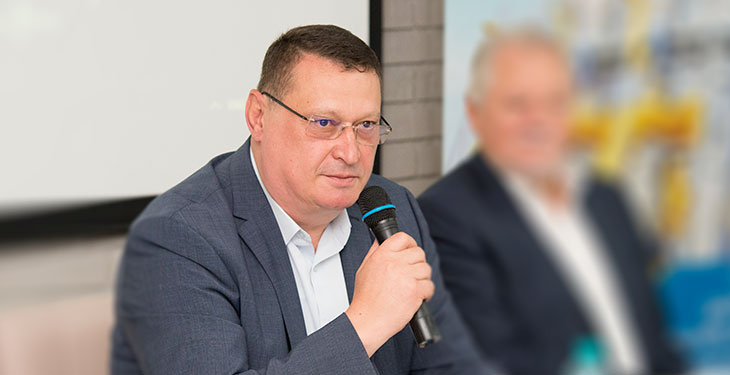“Today’s event is a very important one for the development of the partnership between the authorities of Romania and those of the Republic of Moldova; tomorrow we will sign a collaboration memorandum that will be the basis for the intensification of the relations between the two Authorities, so that good practices will be promoted and assumed by us, consolidating our traditional relationships”, said Dumitru Chiriță, president of ANRE Romania – ANRE, during the first edition of the conference series “Regional Approach: Partners in energy – global expertise, local opportunities”, organized by energynomics.ro, in Chisinau.
What are the provisions of the new MoU between ANRE Romania – ANRE Republic of Moldova
The Cooperation and Assistance Program between the National Agency for Energy Regulation of the Republic of Moldova and the National Energy Regulatory Authority of Romania was signed on Thursday, September 26. It aims to develop and intensify bilateral cooperation on many levels, in order to share best practices in the regulation of the energy sector, but also in the implementation of European and international standards in the following areas of responsibility: the power sector, the natural gas sector, the thermo-energy sector, licensing, monitoring and control of licensed activities, legal issues and consumer protection issues, energy supervision, the field of information technologies (IT), international cooperation and communication.
“The collaboration between the two public authorities will include regular top level meetings and also at the level of the subordinate authorities or structures, the exchange of experience and the support in the field of elaboration and improvement of the national legislative-normative framework of regulation in the energy field through the experience of Romania as a member state of the European Union, joint projects, attracting the available European funds, study visits, training courses for employees, participation in conferences, meetings, seminars or other actions organized with the support of international partners ”, claims ANRE.
Energy efficiency and renewable are the priorities
Romania has good achievements in respect to energy from renewable sources and energy efficiency, exceeding the 2017 target set at 24% RES in 2020, said Chiriță.
“One of the main objectives of the package of legislative measures Clean energy for all Europeans aims at the paramount role given to energy efficiency, which has multiple benefits for operators and consumers and is a central pillar of the economy,” said Chiriță.
Legislative proposals in the Clean energy for all Europeans package aims at energy efficiency, energy from renewable sources, electricity market design, security of supply and governance regulations.
“At the same time, the European targets for the year 2030 regarding increased efficiency and the share of renewable energy in the gross final consumption were approved, in percentage of 32.5%, respectively 32% – with revisions due in 2023”.
In July 2018, the new European Directive on the performance of buildings came into force. “It was not by chance that this Directive was approved first among the eight pieces of legislation comprising the new European package: four Directives and four European Regulations. Because of the huge potential for savings in the building sector, the largest European energy consumer – with 40% share, while in Romania the share is 45% – this segment is also responsible for one third of Europe’s carbon emissions. In this regard, ANRE participated in the working groups for transposing the revised Directive on the energy performance of buildings; the document is now under public scrutiny, on the website of the Ministry of Development”, said Chiriță. After two years of debates (2016-2018), the revised Energy Efficiency and Renewable Energy Directives were published in December 2018, to create a framework in line with the Paris Agreement.
“Starting with September, ANRE participates in the working group formed at the Ministry of Energy on the transposition of the revised Energy Efficiency Directive, with a deadline on June 2020.”
At the same time, the Regulation for the Governance of the Energy Union, also published in December 2018, concerns the strategic planning of Energy and Climate Change, until 2030. In this regard, the Romanian authorities transmitted to the European Commission the draft of the Integrated National Plan for Energy and Climate Change 2021-2030 (NEPC), and “its final form will be finalized after discussions with the EC, until December 31, 2019”, Chiriță also said. The initial proposed targets for green energy and energy efficiency proposed in the PNEC for 2030 were 27.9% and 37.5%, respectively, under the conditions of the 2017 PRIMES scenario.
